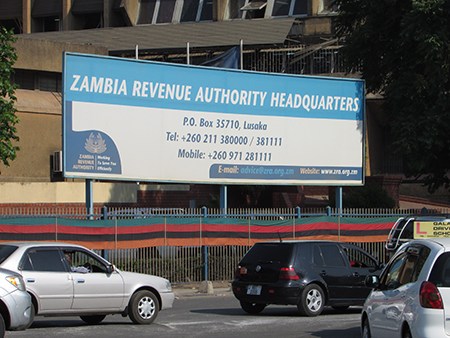• Monthly fuel adjustments have brought a lot of uncertainty in the public transport sector.
• Bus and Taxi Owners Association of Zambia in consultation with RTSA agreed to come up with a formula.
• The formula would have a trigger point that will justify either increment or reduction of bus fares without consultations.
Fuel is one of the most important inputs for economic development as it drives the wheels of production.
The use of energy drives economic productivity and industrial growth, and is therefore central to the operation of any modern economy.
When crude oil prices rise, naturally, input costs and overall production costs also rise and this causes profit margins to fall which in turn reduces the stock price of any company or business entity.
Oil price increases are generally thought to increase inflation and reduce economic growth.
In terms of inflation, oil prices directly affect the prices of goods made with petroleum products and indirectly impact costs such as transportation, and manufacturing.
In Zambia, pricing of fuel is determined by international oil prices and performance of the Kwacha against the United States dollar, which is the currency used for fuel trade on the international market.
And Energy Regulation Board (ERB) has been reviewing fuel prices on a monthly basis in line with its monthly pricing cycle which commenced in January 2022.
According to ERB, reviewing fuel prices on a monthly basis will minimize Government’s exposure to losses in the exchange rate in case of a depreciating local currency and ensure that enough revenue is collected to sustain the continued importation of petroleum products.
“It must be noted that monthly fuel price reviews are not entirely new to Zambia. A similar pricing cycle was used prior to 2008 in Zambia. Pricing of fuel in Zambia is determined by two main factors namely: the international oil prices and the exchange rate of the Kwacha against the United States dollar (US$), which is the currency used for fuel trade on the international markets,” ERB recently told Money FM News.
However, this pricing mode has not been supported by stakeholders in the transport sector as they feel it has brought a lot of uncertainty in terms of planning for business operations.
According to the stakeholders, the continued monthly revision of fuel pump prices by is uneconomical, unsustainable and detrimental to economic development because the confusion and uncertainty in the pricing model of fuel by ERB is a draw-back to meaningful national economic development.
But ERB has insisted that shortening the pricing cycle from 60 to 30 days entails that the price of fuel is more responsive to changes in both the exchange rate and international oil prices, hence, any benefits that would be derived from the appreciation of the Kwacha and reductions in oil prices during the 30 day pricing cycle, would accrue to consumers in the following months’ price review.
In view of the monthly review of fuel prices, Bus and Taxi Owners Association of Zambia recently agreed with Road Transport and Safety Agency (RTSA) to introduce a formula that would have a trigger point that will justify either increment or reduction of bus fares without going into consultations.
Speaking to Money FM News, Association National Secretary General Sydney Mbewe explained that it was going to be very tedious for stakeholders to be sitting every month to decide whether to increase or reduce bus fares depending on developments in fuel prices on the local market.
Mr. Mbewe said currently what is being effected is a formula that RTSA is able to fit in figures based on the existing fares and be able to come up with the increment that the formula is going to give them.
“Monthly fuel adjustment have brought a lot of uncertainty in the public transport sector, it was going to be a very tedious job to be sitting every month to look at whether to increase or reduce bus fares and also realizing that in the past as a sector, we were always quick to look at the increment of fares every time the pump price went up”
“So the Bus and Taxi Owners Association of Zambia in consultation with RTSA based on the concerns that have been raised, did make an agreement that we come up with a formula that would have a trigger point that would justify increments without going into consultations. In this formula what we look at in terms of a trigger point is to see if we have a trigger point that justifies the increment or reduction of fares, in terms of the increment or reduction in the pump price of fuel,” Mr. Mbewe said.
Meanwhile, President of the Commuter Rights Association of Zambia Aaron Kamuti said whenever there is an adjustment in fuel prices whether upwards or downwards, stakeholders usually call for consultations to harmonize the situation.
Mr. Kamuti however said in view of the June petrol price increase, the Association does not expect any stakeholder consultation meeting to talk about revising the bus fares because the increment is minimal.
“I don’t want to pre-empty what has not been proposed yet but obviously as operators we are in business so there is always a reaction coming from them. Especially that the fuel price has gone up, we anticipate maybe they would want to see how we can work around the figures and adjust.”
“But again, few weeks ago we met as stakeholders to look at what we expected to see on bus fares downwards, that was adjusted especially on petrol but we didn’t actually come out on the local route because what was adjusted was minimal, so even on this we expect that there is no need for us to sit down and start talking about revising the bus fares,” Mr. Kamuti said.
In line with the monthly pricing cycle, ERB has increased the price of petrol by 80 Ngwee per liter, pushing the price of the commodity to K24.95 while the price of diesel and kerosene remain unchanged.
The upward adjustment of petrol has been attributed to the international prices of the commodity which increased by 8.9 percent.
On 30th April, 2022, ERB revised downwards the fuel pump prices by K2.35 per litre for Petrol, 58 ngwee per litre for Diesel and 56 ngwee per litre for Kerosene.
The April fuel adjustment prompted RTSA and bus operators to resolve to reduce inter-city bus fares by K10, while fares for inter-mine, peri-urban and local routes remained unchanged due to the negligible average price reduction of petrol.







